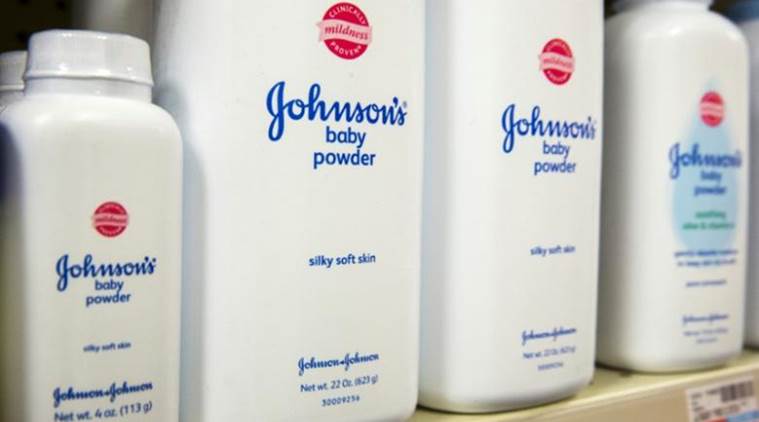CDSCO asks J&J to show cause for advertisements using govt test results
The move comes nearly a week after the company issued a statement that CDSCO had found its baby powder asbestos-free.
 J&J came under fire and global scrutiny following a December 2018 article in Reuters that stated the firm had known “for decades” its baby powder contained carcinogenic asbestos and the firm kept this information from regulators and the public. (Reuters/File)
J&J came under fire and global scrutiny following a December 2018 article in Reuters that stated the firm had known “for decades” its baby powder contained carcinogenic asbestos and the firm kept this information from regulators and the public. (Reuters/File)
The Central Drugs Standard Control Organisation (CDSCO) on Tuesday issued a show cause notice to US baby powder manufacturer Johnson & Johnson for using findings from the regulator’s tests for cancer causing asbestos in advertisements. The move comes nearly a week after the company issued a statement that CDSCO had found its baby powder asbestos-free.
The publication of any advertisement on the basis of test report of a government analyst is not permissible under Section 29 of the Drugs and Cosmetics Act, 1940, according to a copy of the notice, which The Indian Express has viewed. According to this section, the use of any report of a test or analysis made by the Central Drugs Laboratory or by a government analyst, or “any extract” from such a report, is punishable with a fine which may extend to Rs 5,000.
“…whereas, publication of such advertisement has the potential to mislead the general public which is against the public interest. And also whereas you had published such an advertisement which appears to be in violation of the provisions of the Drugs and Cosmetics Act, 1940. Accordingly, you are show caused as to why appropriate action as provided under the Drugs and Cosmetics Act, 1940 be not initiated against you for such violation in accordance with law,” stated Drug Controller General of India Eswara Reddy in CDSCO’s notice dated March 5.
“Your reply should reach to this office within a period of seven days from the date of the receipt of this Show Cause Notice, failing which it will be presumed that you have nothing to say in the matter and appropriate action in accordance with law will be initiated against you,” he added.
CDSCO has also told the company not to publish any such advertisement or any similar kind of advertisement “till further orders”. Queries sent to Johnson & Johnson remained unanswered by press time Tuesday.
According to the notice, samples of raw material (talc) of Johnson & Johnson baby talc powder was drawn by CDSCO drug inspectors for the purpose of testing for the presence of asbestos in the raw material. These samples of raw materials were tested at the Central Drugs Laboratory, following which the findings were communicated to the company, it added. Johnson & Johnson said last Thursday that it has resumed making its baby powder at its manufacturing plants in Baddi and Mulund, after tests conducted by the country’s apex drug regulatory body reaffirmed that the products did not contain asbestos, a cancer-causing ingredient.
J&J came under fire and global scrutiny following a December 2018 article in Reuters that stated the firm had known “for decades” its baby powder contained carcinogenic asbestos and the firm kept this information from regulators and the public. The CDSCO that month seized samples of the product from J&J’s manufacturing plants. Following CDSCO’s green light to J&J, the firm published advertisements stating that government lab tests confirmed its powder was asbestos-free.





- 01
- 02
- 03
- 04
- 05


























